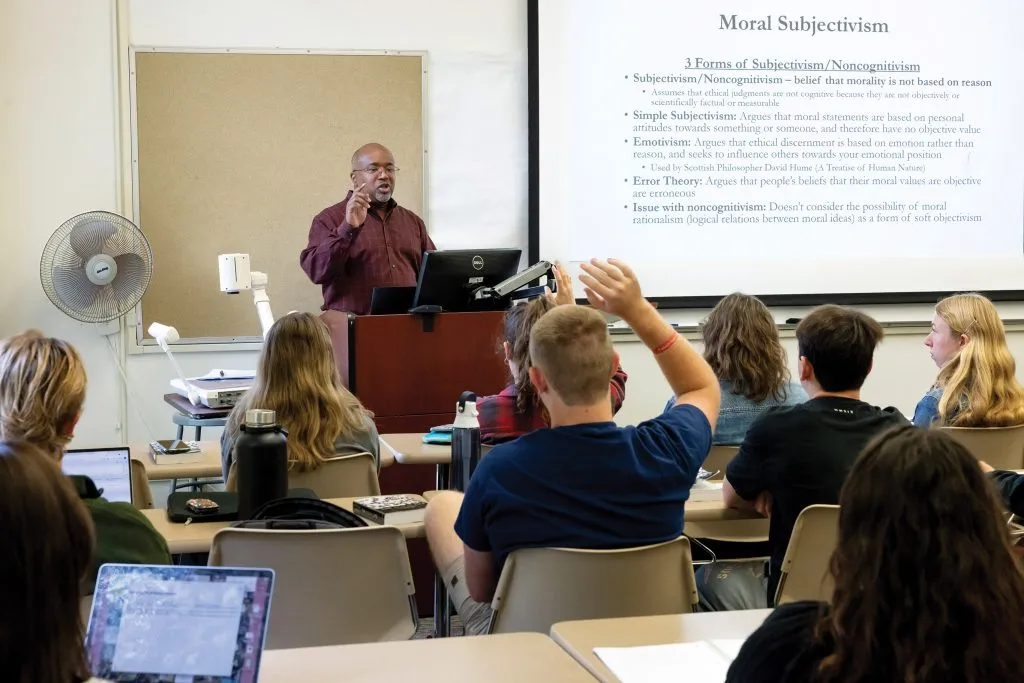
Following President Trump’s executive order to cease federal Diversity Equity Inclusion (DEI) programs, universities and companies across the country have followed suit and chosen to stop allocating resources toward DEI initiatives.
The terminology DEI is loosely defined across various institutions and encompasses a variety of frameworks that promote the representation of all groups, including those who have been historically underrepresented.

The Point sat down with Walter Augustine, associate vice president of diversity and belonging, to check in on what the future looks like for Point Loma Nazarene University’s efforts to cultivate diversity on campus.
TP: What do our diversity initiatives look like, in relation to or versus a DEI framework? What do they encompass for our school?
WA: There’s a few things that I would say around the work that we’re doing here. One, let me just talk a little bit about what it’s not. So I would say that number one, our work is not about quotas. It’s not about mandates, but our work is grounded within our biblical and theological convictions, quite honestly, within our understanding of what it means to be a Christian university, within that Wesleyan holiness tradition. It’s grounded within this understanding of: ‘What does it mean to create a community of belonging for all members of our community?’ I would say that’s really the root of what it is that we do and where we’re coming from. And this is something that’s been a conviction of PLNU for many years, even before I came.
TP: Following Trump’s executive actions to dismantle DEI programs within the government, some higher education universities have followed suit. Could Point Loma be in jeopardy of wagering funding elsewhere when it comes to diversity initiatives?
WA: I would go back to the rootedness within our theological convictions. This is something that has been a value for Point Loma for many years. I would say that we do not, right now, have any plans on shutting down or stopping any of the work that we’ve been doing. So to give you an example, The Office of Multicultural and International Student Services (OMISS) just hired a brand new director. As far as I know, there are no plans on stopping any of the programming that we’re doing, [or] the Civil Rights pilgrimage classes that we have. We’re planning on continuing to keep those going and building up on those.
TP: Considering groups in previous years like the Bresee Collective as well as the growing rhetoric against diversity initiatives, are you anticipating any challenges in the coming years?
WA: I think anytime that you have a large community and a large body, none of us all agree on the same thing. None of us see things the same way all the time. Is there a possibility that somebody may say: ‘We don’t like that?’ There’s always those possibilities, but at the same time, I would say as an institution, we still stand by our convictions, our theological convictions, our biblical convictions, of who we’re called to be and the type of community that we are called to be. When or if those situations occur, we will continue to speak on the fact that this is who we’re called to be. We’re called to be this community of belonging. We’re called to be this community that is rooted within our biblical and theological principles around some of this. Those things may come up, because, again, none of us agree on everything. There are going to be folks who might not agree with some of the work that we do as a community.
TP: How do you view the potential of hate speech arising? Is this a concern, or does it feel like something that may not present itself more in the coming years?
WA: Point Loma has, hopefully, I think, very clear standards of what it means to be a member of our Point Loma community, for students, staff and faculty, which can be found in a student handbook, which can be found in our community covenant. And so with regard to hate speech, it’s pretty much laid out that acts of hate speech are not in alignment with who we are called to be as a community here at Point Loma. I would say that specifically, when it comes to hate speech, or any other things that sort of go against who it is that we’re called to be, that we already have in place different methods for people to be able both to report right as well as be able to know the guidelines.
